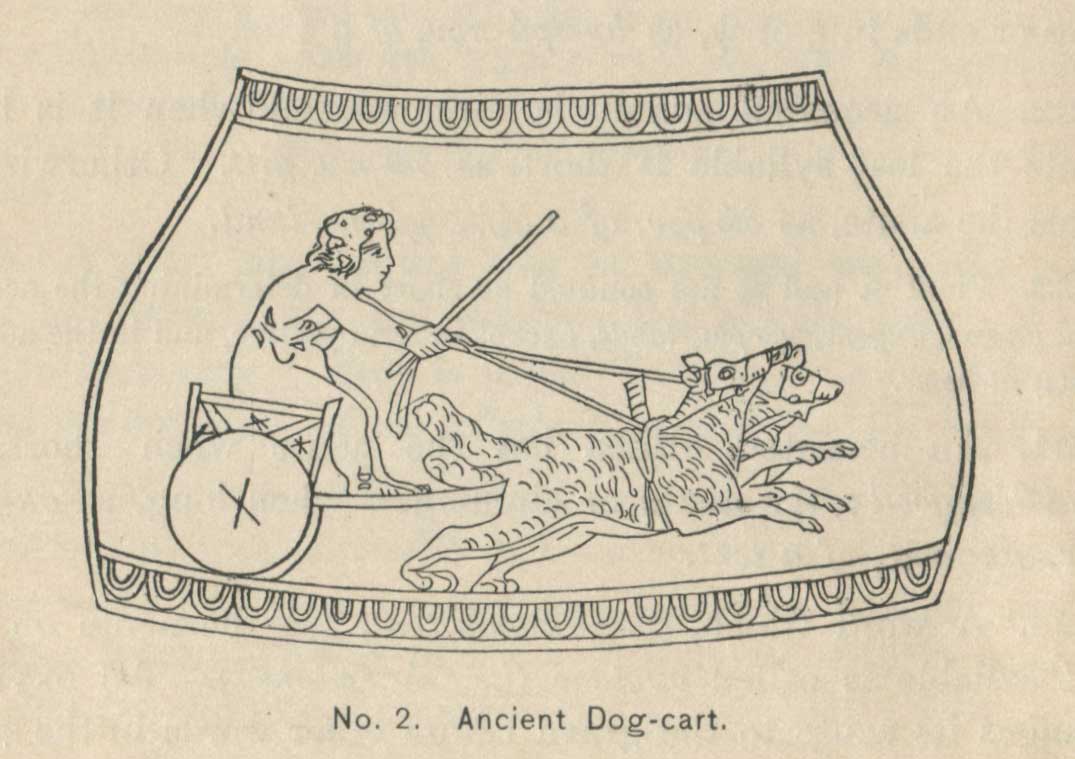THE FIRST GREEK BOOK
BY JOHN WILLIAMS WHITE, PH.D, LL.D., LITT.D.
Professor Of Ancient Greek At Harvard University
This Revision Copyright ©2012 by Shawn Irwin
Lesson II - Breathings, Syllables, Elision, Accent, Punctuation.
S14. Every vowel or diphthong at the beginning of a word has either the rough breathing ( ῾ ) or the smooth breathing ( ᾿ ).
The rough breathing shows that the vowel is aspirated, i.e. that it is preceded by the sound of h, as
ἡ-μέ-ρα,
day, υἱ-ός, son, Ἑλ-λη-νι-κός, Greek,
the smooth breathing shows that the vowel is not aspirated, as ἄ-γω, I lead, Ἀρ-τε-μις, Artimis,
ᾤ-κη-σα, I dwelt.
S15. A Greek word has as many syllables as it has separate vowels or diphthongs. A Syllable is long by nature when it has a long vowel or diphthong.
In dividing a word into syllables, single consonants and combinations of consonants which can begin a
word are, with few exceptions, placed at the beginning of the syllable; other combinations of consonants are divided.
Thus φο-βε-ρός, frightful ὁ-πλῑ-τῆς, hoplite but
ἁρ-πά-ζω, I plunder.
S16. A short final vowel may be dropped when the next word begins with a vowel, whether this has the rough or the smooth breathing. This is called Elision.
An apostrophe marks the omission. Thus ἐπαὐτόν, against him, for
ἐπὶαὐτόν.
S17. Most words ending in σι, and all the verbs of the third person ending in
ε, generally add ν, when the next word begins with a vowel, as
ἔχυοσιν οἰκίᾱς, they have houses εἶχεν οἰκιᾱν, he had a house.
This is called ν movable. It may also be added at the end of a sentence.
S18. There are three accents:
the acute (ό), as ἀ-γα-θός, good ἡ-μέ-ρᾱ, day
Ἄρ-τε-μις, Artemis, ᾤ-κη-σα, I dwelt
the grave (ὸ), as σκη-ναὶ ἀ-γα-θαί, good tents
the circumflex (ῖ), as σκη-νῆς, of a tent ὧ-δὲ, thus
ἐν σκη-ναῖς, in tents.
S19. The acute can stand only on one of the last three syllables of a word, the circumflex only on one of the last two, and the grave only on the last.
S20. The circumflex can stand only on a long syllable. When long ᾱ, ῑ, ῡ have the circumflex, the long mark is omitted, and the are written
ᾶ, ῖ, ῦ.
Definition: The ultima is the last syllable in a word, the penult is the second-to-last syllable in a word, and the antepenult is the syllable before the penult. i.e.
(prefix)-antepenult-penult-ultima*
* a prefix may or may not exist.
S21. The antepenult, if accented, takes the acute, as ἄν-θρω-πος, man; but it can have no accent if the last syllable is long or ends in
ξ or ψ, as ἂν-θρώ-ποῦ, of a man.
S22. An accented penult is circumflexed when it is long while the last syllable is short, as
δῶ-ρον, gift, Otherwise, it takes the acute, δώ-ρου, of a gift,
χώ-ρᾱ, land.
S23. Final αι and οι are counted as short in determining the accent, as
ἅ-μα-ξαι, wagons χῶ-ραι, lands, except in the optative, and the adverb
οἴ-κοι, at home.
S24. An accented ultima has the acute when short, as ἀ-γα-θός, good; the acute or circumflex when
long, as σκη-νή, tent, σκη-νῆς, of a tent.
S25. A word which, like σκη-νή, tent, has the acute on the last syllable is called the oxytone (i.e. sharp-tones). An oxytone changes its acute to the grave before other words in the same sentence, as
σκη-νὴ ἀγαθή, a good tent.
S26. Some monosyllables have no accent and are closely attached to the following word, as
ἐν σκη-νῇ, in a tent. These are called proclitics.
S27. An enclitic is a word which loses its own accent and is pronounced as if it were part of the preceding word, as
ἄν-θρω-ποί τε, hominesque in Latin.
S28. The Greek uses the comma and period as in English. It also has a colon, ( · ) a point above the line, which is equivalent to the English colon and semicolon. The mark of interrogation is ( ; ), it is the same as the English semicolon. So in Greek, “ ;” is equal to the English “?”.

End Of Chapter
End Of Chapter
INDEX
Chapter 3
HOME
